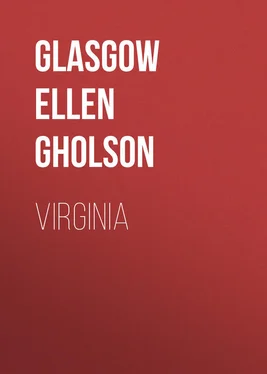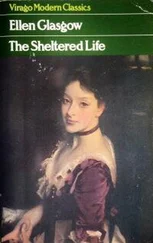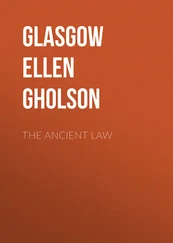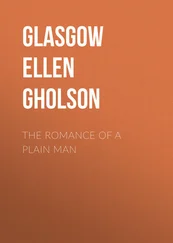Ellen Glasgow - Virginia
Здесь есть возможность читать онлайн «Ellen Glasgow - Virginia» — ознакомительный отрывок электронной книги совершенно бесплатно, а после прочтения отрывка купить полную версию. В некоторых случаях можно слушать аудио, скачать через торрент в формате fb2 и присутствует краткое содержание. Жанр: foreign_antique, foreign_prose, на английском языке. Описание произведения, (предисловие) а так же отзывы посетителей доступны на портале библиотеки ЛибКат.
- Название:Virginia
- Автор:
- Жанр:
- Год:неизвестен
- ISBN:нет данных
- Рейтинг книги:4 / 5. Голосов: 1
-
Избранное:Добавить в избранное
- Отзывы:
-
Ваша оценка:
- 80
- 1
- 2
- 3
- 4
- 5
Virginia: краткое содержание, описание и аннотация
Предлагаем к чтению аннотацию, описание, краткое содержание или предисловие (зависит от того, что написал сам автор книги «Virginia»). Если вы не нашли необходимую информацию о книге — напишите в комментариях, мы постараемся отыскать её.
Virginia — читать онлайн ознакомительный отрывок
Ниже представлен текст книги, разбитый по страницам. Система сохранения места последней прочитанной страницы, позволяет с удобством читать онлайн бесплатно книгу «Virginia», без необходимости каждый раз заново искать на чём Вы остановились. Поставьте закладку, и сможете в любой момент перейти на страницу, на которой закончили чтение.
Интервал:
Закладка:
To-day, at the beginning of the industrial awakening of the South, she (who was but the embodied spirit of her race) stood firmly rooted in all that was static, in all that was obsolete and outgrown in the Virginia of the eighties. Though she felt as yet merely the vague uneasiness with which her mind recoiled from the first stirrings of change, she was beginning dimly to realize that the car of progress would move through the quiet streets before the decade was over. The smoke of factories was already succeeding the smoke of the battlefields, and out of the ashes of a vanquished idealism the spirit of commercial materialism was born. What was left of the old was fighting valiantly, but hopelessly, against what had come of the new. The two forces filled the streets of Dinwiddie. They were embodied in classes, in individuals, in articles of faith, in ideals of manners. The symbol of the one spirit was the memorial wreaths on the battlefields; of the other it was the prophetic smoke of the factories. From where she stood in High Street, she could see this incense to Mammon rising above the spires of the churches, above the houses and the hovels, above the charm and the provincialism which made the Dinwiddie of the eighties. And this charm, as well as this provincialism, appeared to her to be so inalienable a part of the old order, with its intrepid faith in itself, with its militant enthusiasm, with its courageous battle against industrial evolution, with its strength, its narrowness, its nobility, its blindness, that, looking ahead, she could discern only the arid stretch of a civilization from which the last remnant of beauty was banished forever. Already she felt the breaking of those bonds of sympathy which had held the twenty-one thousand inhabitants of Dinwiddie, as they had held the entire South, solidly knit together in a passive yet effectual resistance to the spirit of change. Of the world beyond the borders of Virginia, Dinwiddians knew merely that it was either Yankee or foreign, and therefore to be pitied or condemned according to the Evangelical or the Calvinistic convictions of the observer. Philosophy, they regarded with the distrust of a people whose notable achievements have not been in the direction of the contemplative virtues; and having lived comfortably and created a civilization without the aid of science, they could afford not unreasonably to despise it. It was a quarter of a century since "The Origin of Species" had changed the course of the world's thought, yet it had never reached them. To be sure, there was an old gentleman in Tabb Street whose title, "the professor," had been conferred in public recognition of peaceful pursuits; but since he never went to church, his learning was chiefly effective when used to point a moral from the pulpit. There was, also, a tradition that General Goode had been seen reading Plato before the Battle of Seven Pines; and this picturesque incident had contributed the distinction of the scholar to the more effulgent glory of the soldier. But for purely abstract thought – for the thought that did not construct an heroic attitude or a concrete image – there was as little room in the newer industrial system as there had been in the aristocratic society which preceded it. The world still clung to the belief that the business of humanity was confined to the preservation of the institutions which existed in the present moment of history – and Dinwiddie was only a quiet backwater into which opinions, like fashions, were borne on the current of some tributary stream of thought. Human nature in this town of twenty-one thousand inhabitants differed from human nature in London or in the Desert of Sahara mainly in the things that it ate and the manner in which it carried its clothes. The same passions stirred its heart, the same instincts moved its body, the same contentment with things as they are, and the same terror of things as they might be, warped its mind.
The canary fluted on, and from beyond the mulberry trees there floated the droning voice of an aged negress, in tatters and a red bandanna turban, who persuasively offered strawberries to the silent houses.
"I'se got sw-eet straw-ber'-ies! I'se got swe-e-t str-aw-ber'-ies! Yes'm, I'se got sw-e-et straw-ber'ies des f'om de coun-try!"
Then, suddenly, out of nothing, it seemed to Miss Priscilla, a miracle occurred! The immemorial calm of High Street was broken by the sound of rapidly moving wheels (not the jingling rattle of market wagons nor the comfortable roll of doctors' buggies), and a strange new vehicle, belonging to the Dinwiddie Livery Stables, and containing a young man with longish hair and a flowing tie, turned the corner by Saint James' Church, and passed over the earthen roadbed in front of the green lattice. As the young man went by, he looked up quickly, smiled with the engaging frankness of a genial nature, and lifting his hat with a charming bow, revealed to Miss Priscilla's eyes the fact that his hair was thick and dark as well as long and wavy. While he looked at her, she noticed, also, that he had a thin, high-coloured face, lighted by a pair of eager dark eyes which lent a glow of impetuous energy to his features. The Treadwell nose, she recognized, but beneath the Treadwell nose there was a clean-shaven, boyish mouth which belied the Treadwell nature in every sensitive curve and outline.
"I'd have known him anywhere from Susan's description," she thought, and added suspiciously, "I wonder why he peered so long around that corner? It wouldn't surprise me a bit if those girls were coming back that way."
Impelled by her mounting excitement, she leaned forward until the ball of orange-coloured yarn rolled from her short lap and over the polished floor of the porch. Before she could stoop to pick it up, she was arrested by the reappearance of the two girls at the corner beyond which Oliver had gazed so intently. Then, as they drew nearer, she saw that Virginia's face was pink and her eyes starry under their lowered lashes. An inward radiance shone in the girl's look, and appeared to shape her soul and body to its secret influence. Miss Priscilla, who had known her since the first day she came to school (with her lunch, from which she refused to be parted, tightly tied up in a red and white napkin), felt suddenly that she was a stranger. A quality which she had never realized her pupil possessed had risen supreme in an instant over the familiar attributes of her character. So quickly does emotion separate the individual from the inherent soul of the race.
Susan, who was a little in advance, came rapidly up the walk, and the older woman greeted her with the words:
"My dear, I have seen him!"
"Yes, he just passed us at the corner, and I wondered if you were looking. Do tell us what you think of him."
She sat down in a low chair by the teacher's side, while Virginia went over to the cage and stood gazing thoughtfully at the singing bird.
"Well, I don't think his nose spoils him," replied Miss Priscilla after a minute, "but there's something foreign looking about him, and I hope Cyrus isn't thinking seriously about putting him into the bank."
"That was the first thing that occurred to father," answered Susan, "but Oliver told me last night while we were unpacking his books – he has a quantity of books and he kept them even when he had to sell his clothes – that he didn't see to save his life how he was going to stand it."
"Stand what?" inquired Miss Priscilla, a trifle tartly, for after the vicissitudes of her life it was but natural that she should hesitate to regard so stable an institution as the Dinwiddie Bank as something to be "stood." "Why, I thought a young man couldn't do better than get a place in the bank. Jinny's father was telling me in the market last Saturday that he wanted his nephew John Henry to start right in there if they could find room for him."
Читать дальшеИнтервал:
Закладка:
Похожие книги на «Virginia»
Представляем Вашему вниманию похожие книги на «Virginia» списком для выбора. Мы отобрали схожую по названию и смыслу литературу в надежде предоставить читателям больше вариантов отыскать новые, интересные, ещё непрочитанные произведения.
Обсуждение, отзывы о книге «Virginia» и просто собственные мнения читателей. Оставьте ваши комментарии, напишите, что Вы думаете о произведении, его смысле или главных героях. Укажите что конкретно понравилось, а что нет, и почему Вы так считаете.












